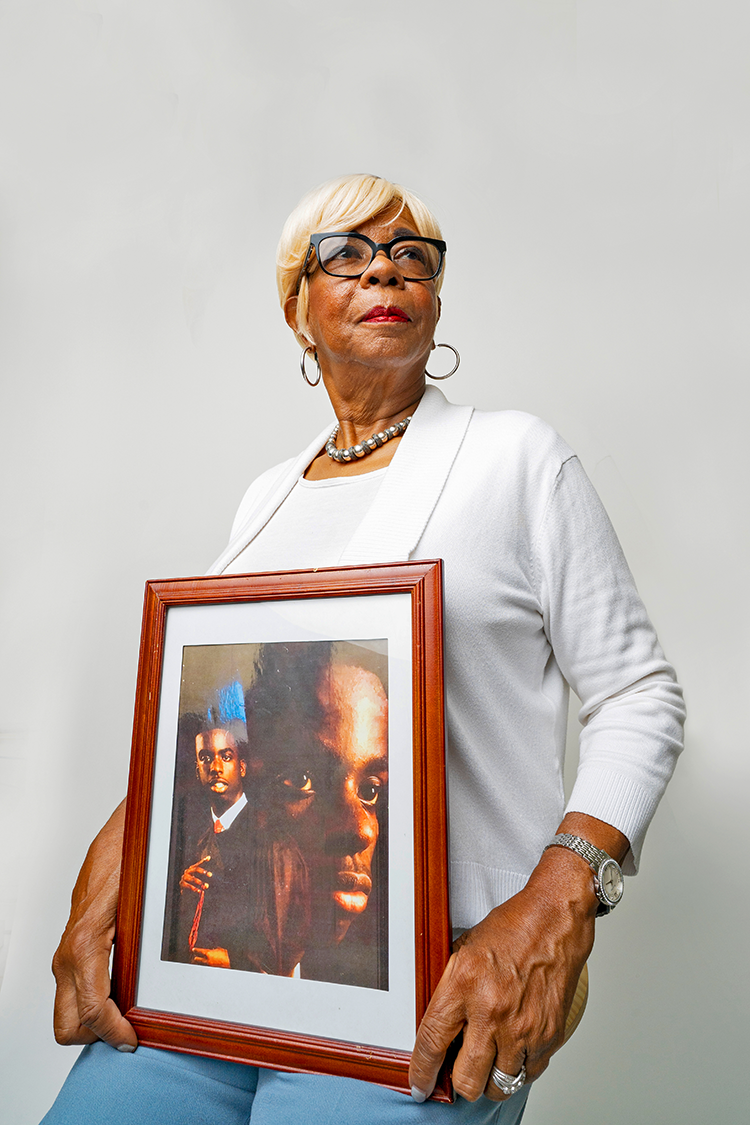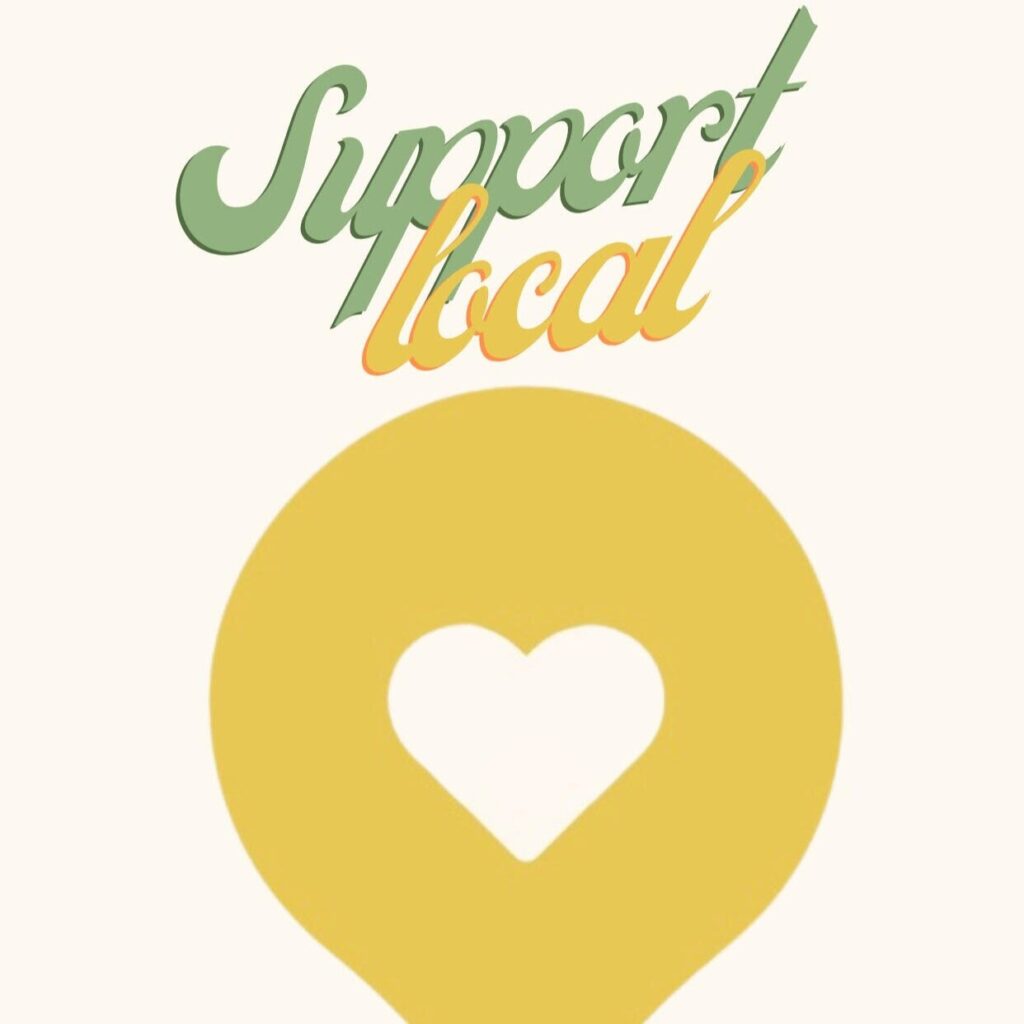I was awake, curled in bed in a fetal position, about a year after my son, Khaaliq Jabbar Johnson was killed over a parking space,” says Dorothy Johnson-Speight, founder and executive director of Mothers In Charge (MIC), which assists parents of murdered children.
“I had a vision where grieving mothers with bullhorns stood in a boxing ring near 22nd Street and Cecil B. Moore, the area where I grew up, telling their sons to put down the guns. God was telling me what to do with my pain.”
Taking Action
Johnson-Speight got to work.

“Over the past 18 years, thousands of mothers have joined MIC,” she says. “I would say the mothers of half [of] the murder victims in the city come to us.”
Michelle Kerr-Spry, 57, is one of those mothers.
“My son Blaine Spry, at 18, was killed in a drive-by shooting when he was visiting a friend in the Northeast,” says Kerr-Spry. “One day [after Blaine’s death] I felt like my heart would just stop beating.”
Kerr-Spry, of Mount Airy, received grief counseling and support from MIC. “I got stronger,” she says. “I healed to the point where I could live.”
Mothers In Charge focuses on healing families, educating the public and preventing murder. Besides a 24/7 hotline, the organization offers on-the-scene support.
“It’s important to reach out to families right away and assure them they’re not alone, that we’ll be here to support them with wellness checks as they go through their trauma,” says Johnson-Speight. MIC provides group and individual counseling for family members, as well as courtroom support.
Johnson-Speight also strives to educate the public about murder. Initiatives like Operation LIPSTICK (Ladies Involved in Putting a Stop To Inner City Killings) help discourage women from buying, hiding and carrying guns for people who can’t pass the background check.
In addition, MIC works to root out causes of murder. Its preventive programs include workshops on solving problems without violence, as well as on anger management.
“Lots of violence stems from people not knowing how to handle anger,” Johnson-Speight says. “City courts and the Philadelphia [Adult] Probation and Parole Department refer people to us for a nine-week course in anger management.”
A mentoring program helps to reach vulnerable young people before they turn to guns.
“Young men with absent fathers may tell themselves, ‘If my father doesn’t want me, then I must not be worth much,’ ” Johnson-Speight says. “That belief puts them at risk, but mentors can help them see their worth.”
MIC also has a reentry program that assists women before they leave prison and afterward.
“One woman wrote to us because her son was killed while she was in prison,” says Johnson-Speight. “If the mother was the sole head of the household before being incarcerated, she may not know where her children are. We help in that respect, too. We also aid women returning from incarceration to connect with job training.”
Space and Support
Victoria Greene, 72, of Germantown, whose son Emir died in 1997 at age 20 in a drug-related dispute, also received an unusual gift.
“God gave me the ability to listen to murder stories,” Greene says. “I’ve heard hundreds of them over the years.”
A social worker retired from the Philadelphia Department of Prisons, Greene founded the Every Murder Is Real Healing Center (EMIR, named for her son) in 1999, a nonprofit located in Germantown.
“After Emir’s murder, I stayed in bed for a month,” says Greene, a divorced mother of five. “I didn’t want to live.”
Greene’s two older daughters took care of the two younger ones during the early months.
Joining a grief-assistance group proved crucial. The group, which used to meet near the medical examiner’s office, has since disbanded.
“Sharing with people who’d had a murder in the family helped,” Greene says.
EMIR provides free grief counseling for families and friends of murder victims as well as courtroom advocacy and support, nutrition counseling and help with victim compensation claims that reimburse funeral costs.
Grief counseling groups meet for eight weeks on Tuesdays.
“First, we all have a meal together to build community,” Greene says. “Afterward, support groups for men, women and children meet separately because each group has different needs. For example, children may not be able to express themselves in words, so we use art and music. Kids often feel angry. When the therapist asked one little boy to make a picture of how he felt, he drew an erupting volcano.”
EMIR helped professional storyteller and music therapist Irma Gardner-Hammond, of Mount Airy, endure the loss of her son.
“My son Eric, at 27, was shot on April 28, 2019, at an ATM,” she says. “He died on May 5, [2019]. At EMIR, I can talk about my feelings, even the crazy ones, and know I won’t be judged.”
Philadelphia had 499 murders in 2020—a 40% increase (356) as compared to 2019. Although EMIR provides a key service, Greene finds herself scrounging for funds.
“Healing from murder isn’t a cute or sexy topic,” she says. “And women of color who head smaller organizations often struggle for funding.”










